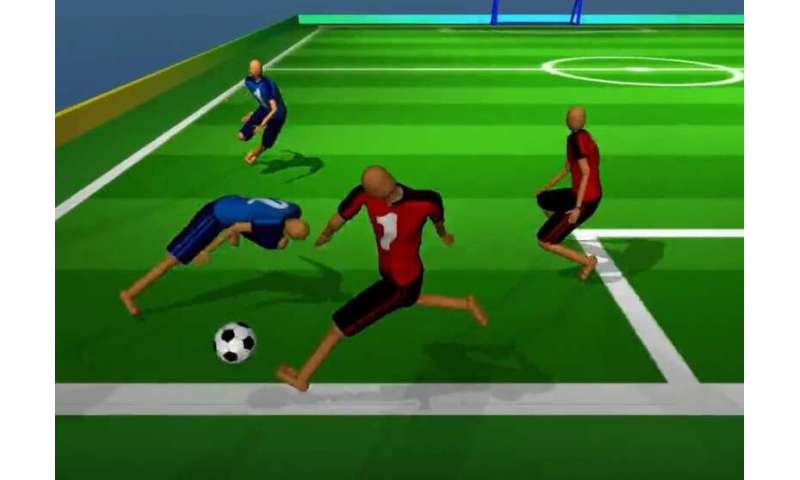Best of Last Week—Arctic lakes drying up, teaching an AI system to play soccer, how fentanyl affects the brain

It was a busy week in Earth and biological sciences as a team of researchers with the Ocean Cleanup project and Wageningen University, both in the Netherlands, found that more than 90% of the identifiable trash in the North Pacific Garbage Patch comes from just six countries—Japan, China, South Korea, the U.S., Taiwan and Canada. Also, a team with members affiliated with several institutions in the U.S. found evidence of permafrost thaw driving surface water decline across lake-rich regions of the Arctic—the disappearance of a large number of lakes in the region has come as a surprise to climate scientists. And the discovery of oak galls near an ant colony by an eight-year-old boy turned out to be part of a previously unknown, elaborate relationship among ants, wasps and oak trees.
In technology news, a team with Sony Computer Science Laboratories developed a way to use a generative adversarial network architecture to restore heavily compressed music files. Also, a team of researchers at Google's Deep Mind London project figured out a way to teach animated players how to play a realistic version of soccer on a computer screen, without ever teaching them the rules. And a team of researchers at the University of Washington developed the first underwater messaging app for smartphones—called AquaApp, the technology allows snorkelers and scuba divers to communicate using native smartphone hardware, overcoming the need to memorize hand signals. Also, a combined team from the University of Toronto and the Barcelona Institute of Science and Technology developed a new, highly efficient lead-bin binary perovskite photodetector with a fast response time.
In other news, a team of researchers at Columbia University Irving Medical Center discovered that a common back ailment could be a sign of heart failure—known technically as lumbar spinal stenosis, the back ailment appears to be related to the development of amyloid deposits in the spine, a symptom of transthyretin amyloid cardiomyopathy. Also, a team at New York University found that an insulin-suppressing protein may be the fountain of youth for ants and may provide clues about aging in other species. And finally, a team at Massachusetts General Hospital discovered how fentanyl affects the brain over time, and how it stops people from breathing, even before they lose consciousness.
© 2022 Science X Network